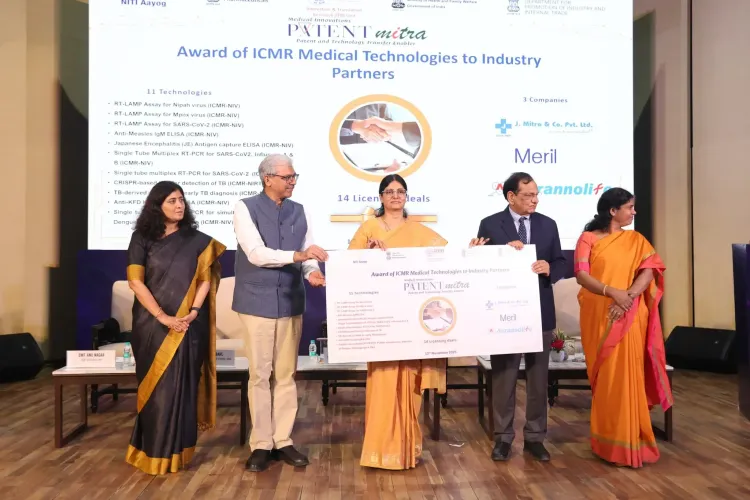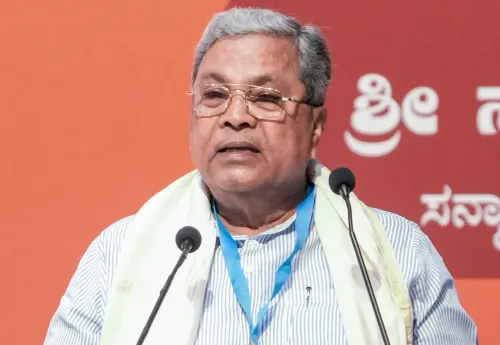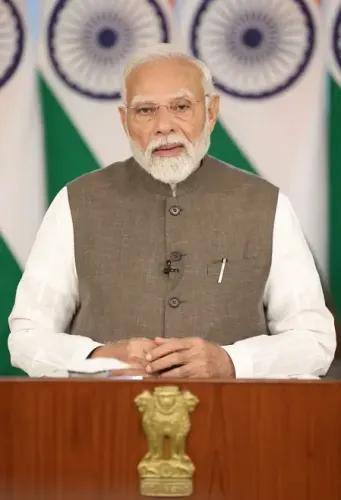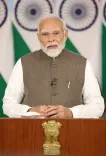Is India Becoming a Leader in Health Research?

Synopsis
Key Takeaways
- India's role in global health research is expanding.
- Innovations like MedTech Mitra are gaining recognition.
- The government prioritizes evidence-based healthcare policies.
- Focus areas include non-communicable diseases and trauma care.
- AI-driven healthcare technologies are the future.
New Delhi, Nov 13 (NationPress) In the last ten years, India has solidified its position as a prominent player in health research. Initiatives such as MedTech Mitra and groundbreaking innovations like Rotavac and the COVID-19 vaccines highlight India's increasing importance in the international health research arena, stated the Minister of State for Health and Family Welfare, Anupriya Singh Patel, on Thursday.
While addressing the audience at the 2nd 'DHR-ICMR Health Research Excellence Summit 2025' in New Delhi, she pointed out the significant enhancement of India’s health research ecosystem under the stewardship of Prime Minister Narendra Modi.
“In recent years, India has risen as a key player in health research. Initiatives like MedTech Mitra and innovations such as Rotavac and the COVID-19 vaccines serve as proof of our growing significance in the global health research landscape,” she remarked.
The minister reiterated the government's dedication to ensuring that the advantages of scientific research reach all societal levels.
“India is increasingly self-sufficient in the MedTech and biomedical innovation sectors. The nation is innovating and proving its ability to deliver comprehensive solutions,” she continued.
Patel emphasized that evidence-based policymaking is a foundational principle of the government. She insisted that clinical guidelines and quality benchmarks need to be accessible to all healthcare professionals to guarantee affordable and equitable healthcare for every individual.
The minister noted that India’s health system is at a crucial juncture. She called upon the scientific community to spearhead advancements in cutting-edge technologies like AI-driven precision healthcare and advanced genomics. In her closing remarks, she congratulated all researchers and awardees, stating, “India should not merely contribute to global science but take the lead.”
Dr V.K. Paul, Member (Health) at NITI Aayog, mentioned that the current healthy life expectancy in India is 60 years, and stressed that the Viksit Bharat vision for ICMR aims to elevate it to over 75 years through innovative interventions, solutions, and advanced technologies.
Dr Paul urged the Department of Health Research (DHR) to concentrate on priority areas such as non-communicable diseases (NCDs), hypertension, and trauma care.









